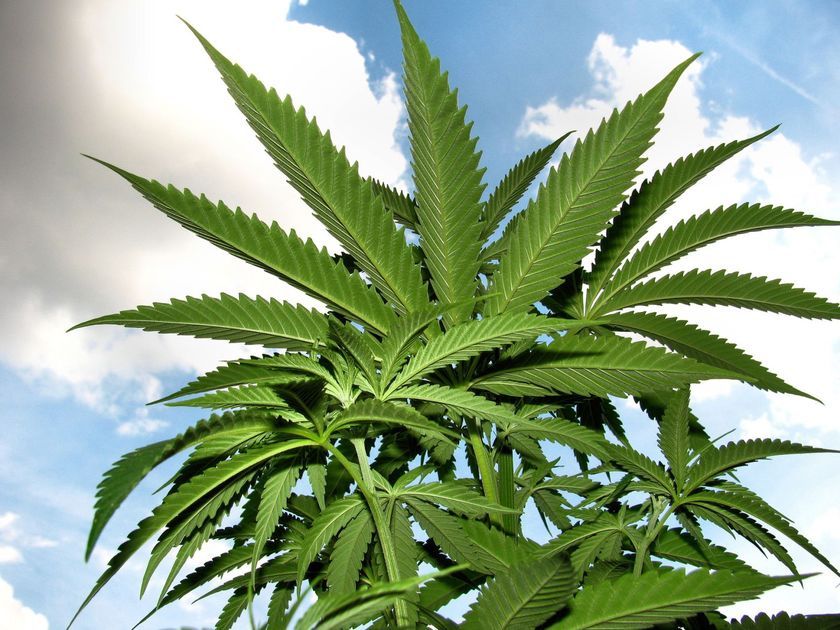In Scottsdale, Arizona a brand new study is underway…
Championed by the Veteran Associations (VA), like the American Legion, and administered by The Multidisciplinary Association for Psychedelic Studies (MAPS), this new study is taking a close look at how medical cannabis affects PTSD in veterans. The study is being run by Dr. Sue Sisley, a conservative psychiatrist who came upon this research after seeing medical cannabis’ effects in her veteran patients who suffered from PTSD.
The journey to beginning this study has been a long one with many difficult turns, but finally, it has started with FDA and DEA approval. The importance of this study cannot be overstated enough by Dr. Sisley. She recalls working for 10 years at the VA hospital and seeing with her own eyes veterans dying from suicide. According to the last known data gathered by the VA, veterans were committing suicide at an alarming rate of 20 veterans per day, back in 2014.
Officially the VA cannot prescribe or suggest medical cannabis to patients suffering from any ailments because they are presided over by a federal agency (federal law trumps state law.) However, there is a growing movement within veteran’s organizations that are embracing medical cannabis, and are pushing for studies, aimed especially in regards to PTSD, and are also pushing for legislation reform in Washington D.C., on the Federal level.
It all started with one phone call to the American Legion, an organization that supports veterans. Louis Celli, national director of veterans affairs and rehabilitation, received a call one day that surprised him. He said that a veteran called and spoke to him about the benefits of medical cannabis for treating symptoms of PTSD. Celli was unsure that a conservative organization like the American Legion would be open to embracing medical cannabis in any capacity. However, he was determined to keep an open mind himself and went about researching medical cannabis. That’s when he discovered Dr. Sisley, and their paths collided.
Dr. Sisley presented Celli with information regarding her work with veterans and medical cannabis and the possibilities it holds. Celli had Dr. Sisley present the information to two boards within the American Legion and finally at the American Legion’s annual conference.
It was there that veterans in the association unanimously voted to promote medical cannabis research and to remove cannabis from its current status as a Schedule 1 drug. While this does not have an impact on federal law, the American Legion carries influence on Capitol Hill and may be able to help turn the tide in favor of medical cannabis federally.
There are many problems with conducting valid research studies on medical cannabis. The biggest being approval from the DEA. While the FDA approved MAPS and Dr. Sisley’s study in 2011, the DEA did not give their approval until the Spring of 2016. Additionally, there are issues with the recruitment of veterans and the quality of medical cannabis they have received.
While the American Legion and other groups are behind the study, the VA hospital cannot recommend patients for the study as it goes against federal law. This has made it substantially more difficult for Dr. Sisley to recruit the number of veterans needed to create a substantial sample size. However, as more veterans hear of the program, they are making an effort to participate and spread the good word. In regards to the quality of medical cannabis, it is comprised of only 12% THC, while medical cannabis available at local dispensaries has 20% THC and even higher levels in some cases. However, this may change in the future as more farms will theoretically be able to grow medical cannabis, based on new legislation.
The study is being tested with 76 veteran subjects, the amount necessary to make it statistically significant. All participants must be diagnosed with PTSD and will meet with doctors 10 times over 18 weeks. During the study, some participants are to be given the 12% THC medical cannabis while others will be given a placebo. The study will monitor patients over a period of time and see if and how their symptoms improve over the course of the study. As the study is already underway, there is not much information about the methodology, however, that will change in two years time, when the study results are due to be published.
All in all, this study shows potential to change the way veterans’ PTSD is treated, something that is exciting to the veteran community and the reason why organizations like the American Legion are publicly supporting the study.
If large, noted, conservative organizations like the American Legion are able to bring about awareness and push legislative change, the public may see more studies like this in the future. While the study has faced its challenges already, the fact that it is currently underway is a triumph for both the veteran and medical cannabis communities.
Hopefully, the future will see more studies like these, in the hope that people who need medical cannabis can finally get the treatment they need.
[Image credit: Pixabay]
